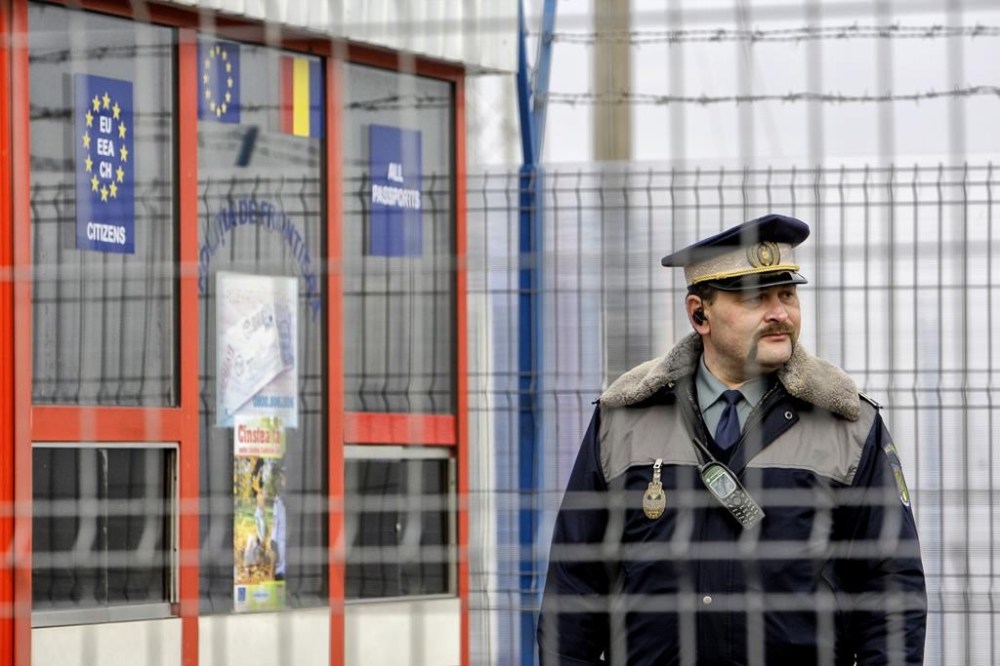Bulgaria and Romania overcome Austria’s objections and get partial approval to join Schengen Area
Advertisement
Read this article for free:
or
Already have an account? Log in here »
To continue reading, please subscribe:
Monthly Digital Subscription
$0 for the first 4 weeks*
- Enjoy unlimited reading on winnipegfreepress.com
- Read the E-Edition, our digital replica newspaper
- Access News Break, our award-winning app
- Play interactive puzzles
*No charge for 4 weeks then price increases to the regular rate of $19.00 plus GST every four weeks. Offer available to new and qualified returning subscribers only. Cancel any time.
Monthly Digital Subscription
$4.75/week*
- Enjoy unlimited reading on winnipegfreepress.com
- Read the E-Edition, our digital replica newspaper
- Access News Break, our award-winning app
- Play interactive puzzles
*Billed as $19 plus GST every four weeks. Cancel any time.
To continue reading, please subscribe:
Add Free Press access to your Brandon Sun subscription for only an additional
$1 for the first 4 weeks*
*Your next subscription payment will increase by $1.00 and you will be charged $16.99 plus GST for four weeks. After four weeks, your payment will increase to $23.99 plus GST every four weeks.
Read unlimited articles for free today:
or
Already have an account? Log in here »
Hey there, time traveller!
This article was published 28/12/2023 (694 days ago), so information in it may no longer be current.
SOFIA, Bulgaria (AP) — Bulgaria and Romania have received permission to join Europe’s passport- and visa-free Schengen Area, starting in March, the governments of the two countries said.
The move initially will apply only to travelers arriving by air and sea, while Austria has committed to continuing negotiations over the need for border checks when crossing from the two countries by land, Bulgarian Prime Minister Nikolai Denkov told reporters on Thursday.
Austria previously blocked Bulgaria’s and Romania’s entry into the Schengen Area over concerns about illegal immigration but reached an agreement in principle with the two fellow European Union members.

“Negotiations with Austria will be combined with substantial support from the European Commission to protect the EU’s external borders with Turkey and Serbia in order to reduce the flow of illegal migrants to Europe,“ Denkov added.
Romanian Prime Minister Marcel Ciolacu confirmed the admission of his country into the border-free travel zone.
“We have a political agreement on this!” Ciolacu said in a post on Facebook. “From March next year, Romanians will enjoy the benefits of the Schengen Area by air and sea.”
The Schengen Area was established in 1985. Before Bulgaria and Romania’s partial admission, it was comprised 23 out of the 27 EU member countries, along with Switzerland, Norway, Iceland, and Liechtenstein.
Austria vetoed Romania and Bulgaria’s admission into the group of European countries at the end of 2022, but at the same time allowed Croatia — the EU’s newest member — full accession. Bulgaria and Romania joined the EU in 2007 and Croatia in 2013.
Critics of said that move alleged the Alpine nation’s rejection was fueled by the growing popularity in opinion polls of Austria’s far-right Freedom Party.
After a government meeting on Thursday, Ciolacu said efforts would continue next year to fully join the Schengen Area. “Lifting the air and maritime borders in March 2024 is a right won after long negotiations, but things won’t stop there,” he said.

